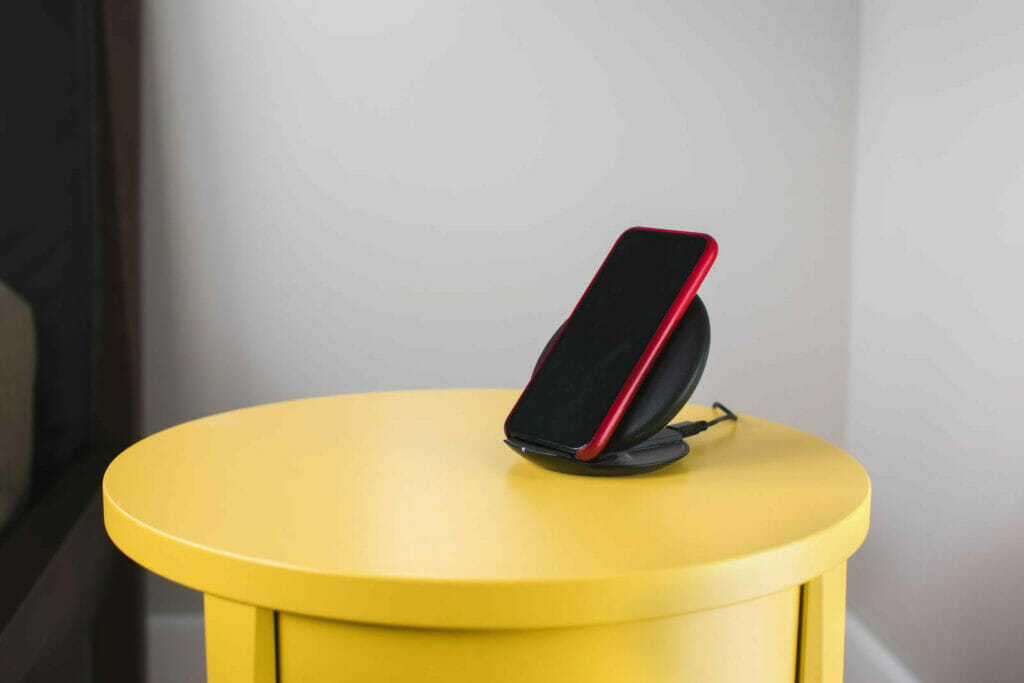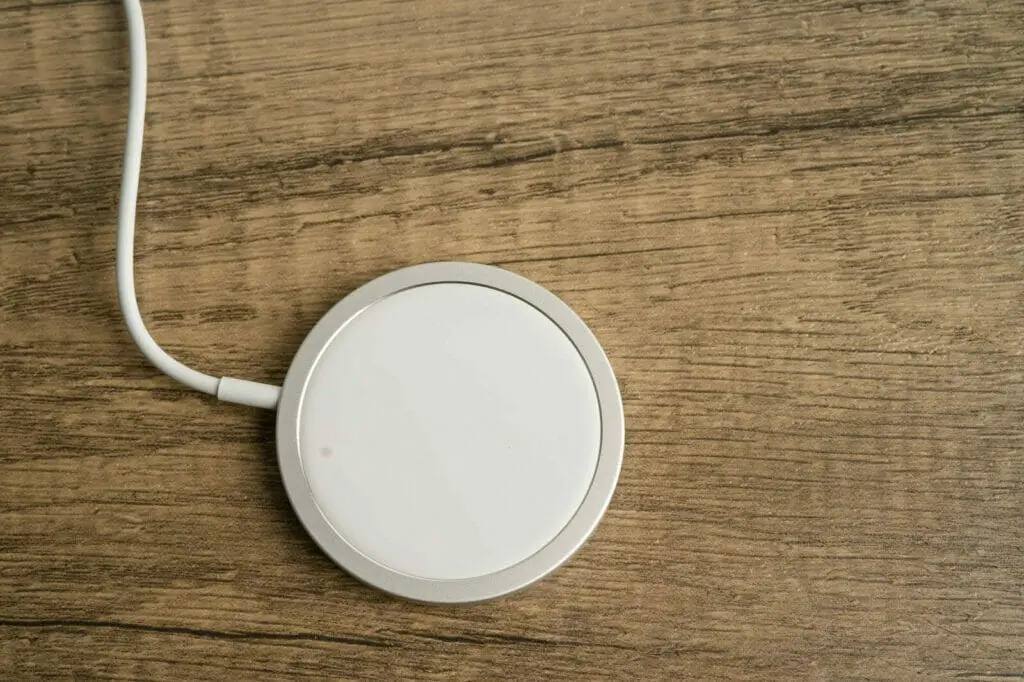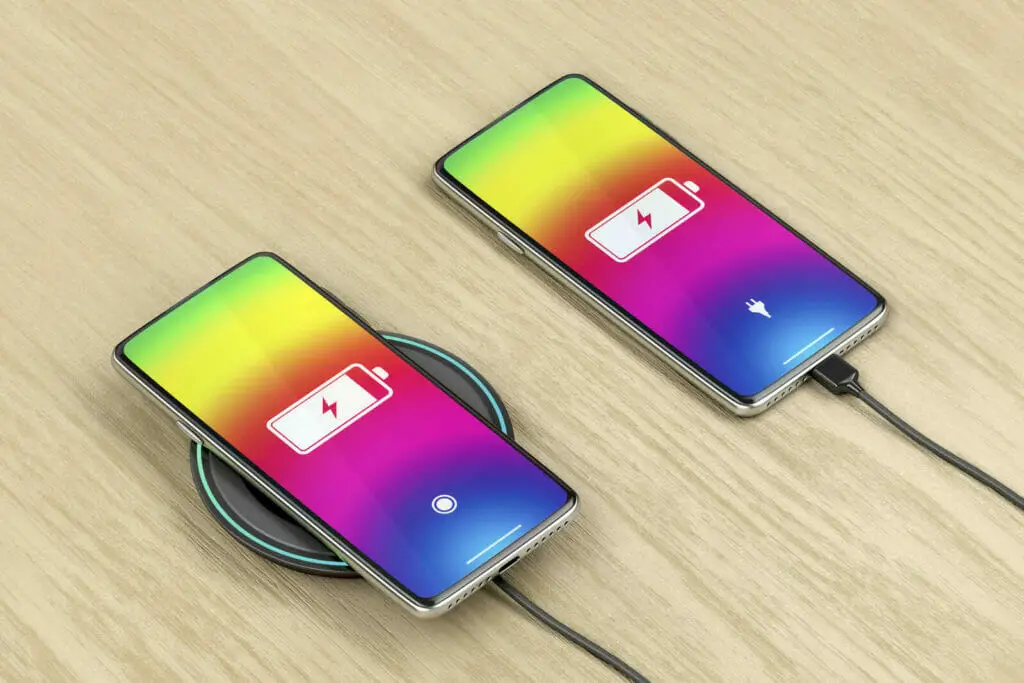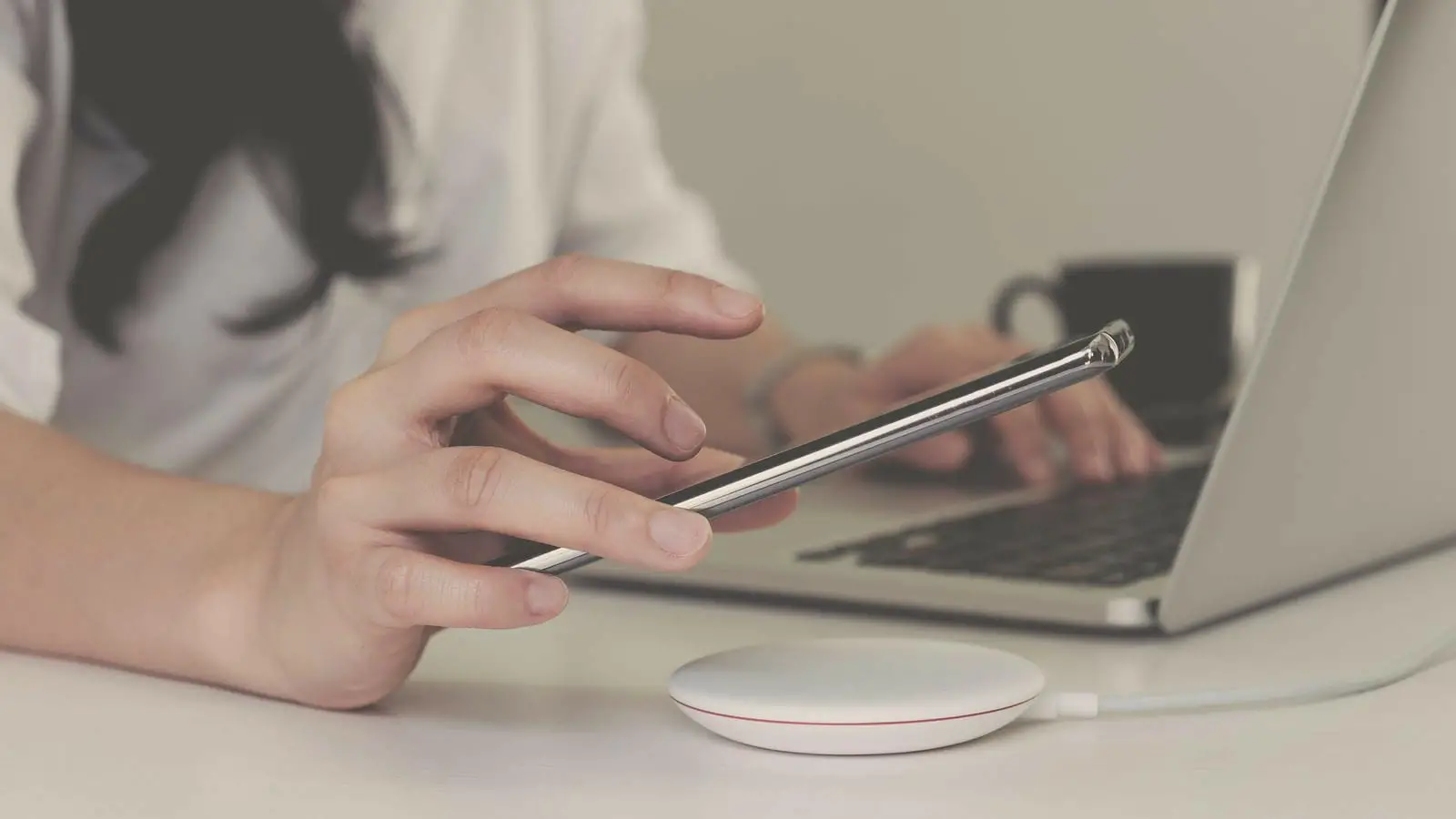Let’s dive into the big question: Is your wireless charger bad for your battery?
Key Takeaways – Wireless charging is not inherently bad for your phone’s battery. However, it can lead to issues if not used correctly. Wireless chargers generate more heat than wired ones due to the energy lost during power transfer, which isn’t ideal for battery lifespan.
I will delve into the nitty-gritty details in this article, so stick around!
How Wireless Charging Works: A Simplified Overview
Alright, let’s dive right into it. Before we delve into whether wireless charging is bad for your battery, I thought it’d be fun to give you a quick glimpse of how this tech works. So buckle up!
With traditional wired charging, you’d plug in your USB cable, and voila – a low-voltage current zips from the charger to your phone over the wires. But with wireless charging? Things get a little more interesting here. Yes, a charger and wire are still involved – only now, the wire goes to a pad instead of directly to your phone.
So how does your trusty smartphone get its power then? The answer lies in something we call magnetic coils. When you place a compatible device on the pad, it activates these coils, emitting a low-power magnetic field.
Now here’s where things kick off! This field interacts with another similar coil hiding inside the back of your phone that converts this magnetic energy back into electricity to charge up our beloved device!
Now that you know how it works, let’s get down to the impact of wireless charging on the battery.
Impacts of Wireless Charging on Battery Health

There’s been quite a buzz about the impact of wireless charging on our phone batteries. Where did this concern originate? Well, it boils down to efficiency – or rather lack thereof. Wireless charging doesn’t generally damage your phone, but it isn’t 100% efficient.
Let’s do a little experiment. Next time you’re charging your phone – whether with a regular wall charger, a wireless pad, or even one of those fancy fast chargers – give it a feel. You’ll likely notice that each method gives off different levels of warmth.
A plain old 5W phone charger leaves your phone barely warmer than room temperature, whereas wireless and fast chargers kick up enough heat to feel when you pick up your device.
But don’t panic! This is normal according to manufacturers like Apple and Samsung, who assure us that phones will limit their charging if they get too hot.
However, I know what you’re thinking: technically speaking, doesn’t this extra bit of heat means wireless charging is damaging my battery? While yes, from a technical standpoint, that might be correct but hold onto your horses because things aren’t so clear cut when we look at real-world usage.
Many variables are at play here – how often you recharge your battery, whether or not you live in warmer weather – making it tricky to pin all the blame for battery health decline solely on wireless charging.
Effects of Heat Generation During Wireless Charging

It pays to know how batteries work – they’re like little energy factories, and like any factory, they don’t enjoy working in high temperatures. Working under these conditions can cause them to degrade faster, so your battery lifespan could take a hit.
Here are some facts:
- Every increase of 10°C doubles the rate of chemical reactions inside batteries.
- High temperature accelerates capacity loss in lithium-ion batteries.
- The optimal operating temperature for most smartphones is between 32° and 95°F.
So what does this all boil down to? Continuous exposure to high temperatures/overcharging could shorten your gadget’s battery lifespan.
But hey! Don’t ditch your wireless chargers just yet! There are ways around this issue:
- Use chargers with built-in cooling features.
- Keep your device out of its case while charging.
- Charge in cooler environments where possible.
Remember though – technology is ever-evolving, and manufacturers are constantly working on solutions for heat management during wireless charging because, let’s face it – we all love our devices and want them around as long as possible!
Addressing Common Myths about Wireless Charging
While it’s true that wireless charging can generate heat, this doesn’t necessarily mean it’ll automatically damage your battery.
Most modern smartphones have built-in mechanisms to prevent overheating — they stop charging once the optimum temperature is reached.
Another common myth is that wireless charging might shorten battery life. Whether you use wired or wireless charging, how often and how long you charge your device matters. Overcharging is the real culprit here!
Here are those myths summarized:
| Myth | Fact |
|---|---|
| Wireless Chargers Overheat Phones | Phones have built-in heat management systems |
| Wireless Charging Shortens Battery Lifespan | Overcharging shortens lifespan, not the method of charging |
Don’t get me wrong – I’m not saying all wireless chargers are equal! Poor products could harm your devices, so always opt for quality over cheapness.
So embrace the convenience of ditching cords without worrying about doomsday scenarios for your precious phone!
Case Studies: Long-Term Effects of Wireless and Wired Charging

You’re probably wondering, “Are there any real-world examples?” You bet! I’ve gathered a few case studies that show the long-term effects of wireless charging on different devices.
First off, let’s take Apple iPhone 12 as an example. “Steve” has been using a wireless charger for his iPhone 12 since he got it last year. He wirelessly charges it overnight – around eight hours each day. Recently, he noticed his battery health dropped to 96% after one year of usage.
On the other hand, my pal Lisa uses her wired charger for her Samsung Galaxy S20 and charges it in much the same way as Steve does with his iPhone. After a year, she reported her battery health was at 98%.
So here are our numbers (all approximate):
| Device | Charging Method | Hours Charged Daily | Battery Health After One Year |
|---|---|---|---|
| iPhone 12 | Wireless | 8 | 96% |
| Galaxy S20 | Wired | 8 | 98% |
There’s a slight difference between these two cases – but remember, this isn’t an exhaustive study! It’s just two examples.
These example figures suggest a minor impact over time due to factors like heat generated during charging which can affect battery longevity.
Here’s what we should keep in mind:
- Don’t leave your device on the wireless charger for longer than necessary.
- Try to keep your device cool while charging.
- Consider using wired chargers if you’re concerned about long-term battery health.
Conclusion? It seems like there could be some small truth to the idea that wireless charging could affect your phone’s long-term battery health – but more research is needed!
References
Organizations:
- Wireless Power Consortium (WPC). https://www.wirelesspowerconsortium.com/
Websites:
- Explain that Stuff. https://www.explainthatstuff.com/
- Physics World. https://physicsworld.com/
- Battery University. https://batteryuniversity.com/
- Digital Trends. https://www.digitaltrends.com/

